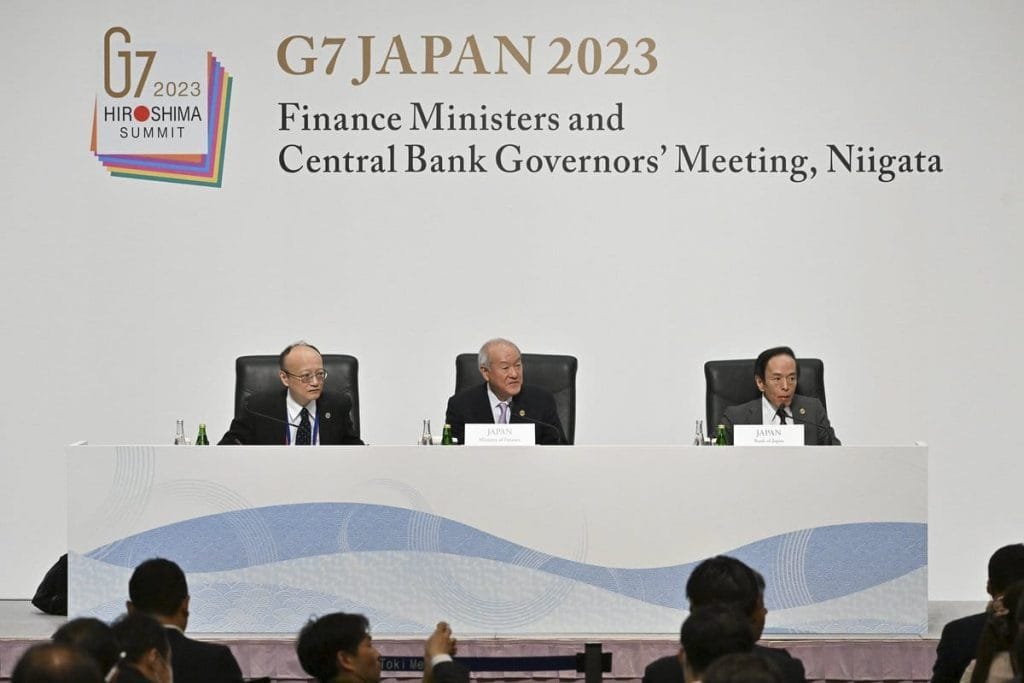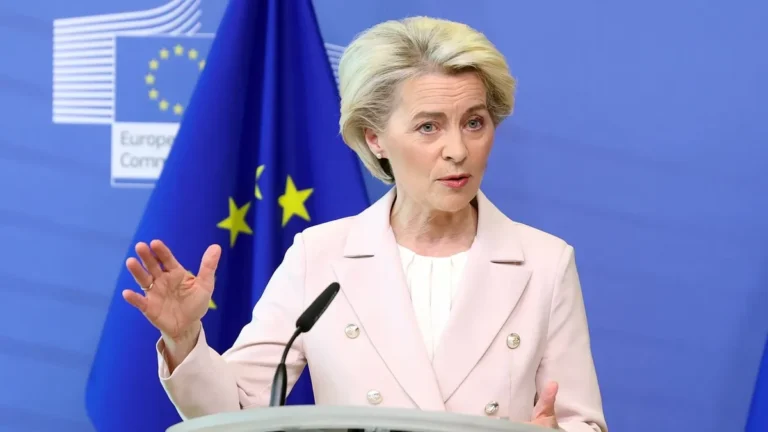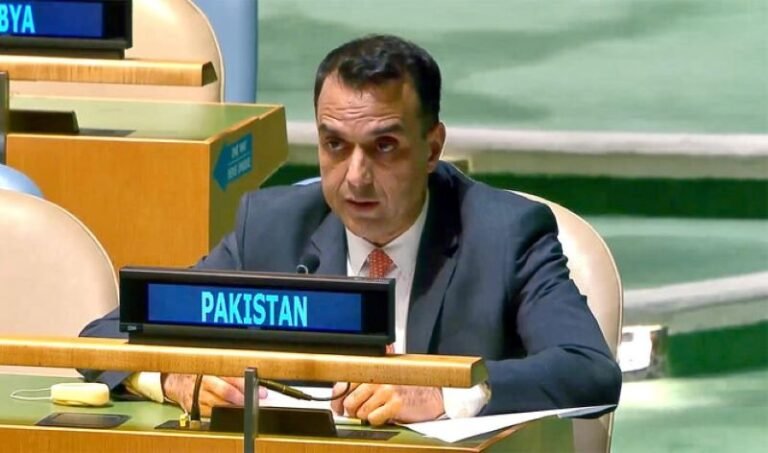Niigata, 13 May 2023 (TDI): Three days G-7 Finance Ministers and Central Bank Governors Meeting regarding global economic challenges concluded today.
The G7 Finance Ministers, Central Bank Governors, and the Heads of the International Monetary Fund, World Bank Group, Organisation for Economic Cooperation and Development, and Financial Stability Board met at Niigata, Japan.
A joint statement was adopted on the concluding day of the G-7 Finance Ministers and Central Bank Governors Meeting.
\#G7新潟/
— 財務省 (@MOF_Japan) May 13, 2023
G7新潟財務大臣・中央銀行総裁会議は共同声明を採択し、3日間の日程を終えて閉幕しました。
共同声明の詳細はこちら▼https://t.co/V1Vgq4IB4I
写真は、議長国会見の模様です。 pic.twitter.com/Tfytu0R6lw
The G-7 members and Finance Ministers exchanged views on recent global economic developments and major challenges to foster robust and sustainable growth.
They expressed their commitment to jointly tackle various global economic challenges, fight poverty, and inclusive global growth.
Immediate Global Challenges
The first part focused on Russia-Ukraine War, Global Economic Policy and Economy, and Support Vulnerable Countries.
Russia-Ukraine War
In the statement issued, the G-7 members and Central Bank Governors condemned Russia’s War against Ukraine and showed their full support for Ukraine. They have pledged to address Ukraine’s pressing short-term financial requirements and extend assistance to neighboring countries and other nations severely impacted by the ongoing conflict.
They reiterated their unwavering resolve to impose and enforce sanctions and other economic measures to undermine Russia’s capacity further.
Global Economic Policy and Economy
In a joint statement, the G-7 members and Central Bank Governors asserted their commitment to a stable and growth-oriented macroeconomic policy mix that supports medium-term fiscal sustainability and price stability.
They also hoped successful review of the G20/Organisation for Economic Cooperation and Development (OECD) Principles of Corporate Governance to strengthen the sustainability and resilience of the private sector.
Also Read: G-7 Corporate Governance Roundtable
The G-7 members and Central Bank Governor reaffirmed their continuous efforts to work closely with supervisory and regulatory authorities to monitor financial sector developments and stand ready to take appropriate actions to maintain financial stability and the resilience of the global financial system.
Support Vulnerable Countries
The G-7 members and Central Bank Governors Meeting asserted their support for the ongoing work on the evolution of the Multilateral Development Banks (MDBs). They also reiterated the urgency of addressing debt vulnerabilities in low- and middle-income countries like Zambia, Ethiopia, Ghana, and Sri Lanka.
They further expressed their commitment to strengthening financial and economic collaboration and political dialogue with African countries.
Building Global Economic Resilience
The second part of the joint meeting statement addressed urgent efforts to tackle climate change and enhance international cooperation and coordination on climate change mitigation policies within the G7 and beyond, particularly with emerging markets and developing economies(EMDE).
The statement also highlighted measures such as building economic efficiency and resilience with the help of enhanced supply chains and better and safe FDI for EMDEs.
For financial digitalization, the statement supported the FATF’s role in accelerating the global implementation of the FATF Standards on virtual assets.
Financial sustainability and integrity were addressed in regard to the increasing role and resource needs of the FATF and its FATF Style Regional Bodies (FSRBs) in overseeing the implementation of the FATF standards across the global network, including in the context of the forthcoming 5th round of mutual evaluations.
The G-7 members and Governors further reaffirmed their strong commitment to strengthening the governance and finance of the global health architecture (GHA).
Finally, the G-7 members and Governors meeting addressed matters pertaining to international taxation and re-emphasized their strong political commitment towards the swift global implementation of the OECD/G20 Inclusive Framework Two-Pillar Solution.
Economic Policies in Pursuit of Welfare
The third and final part of the statement addressed economic and social structures that have undergone a dynamic and fundamental transformation. The G-7 Finance Ministers and Central Bank Governors stressed policymakers to follow multidimensional indicators for measuring welfare and explore operational tools to reflect such indicators in policymaking.
Student, Researcher & Teacher | Specializes in Business | Areas of interest: INGO, Trade & Economy | maqsood.sidra@ymail.com
- This author does not have any more posts.








